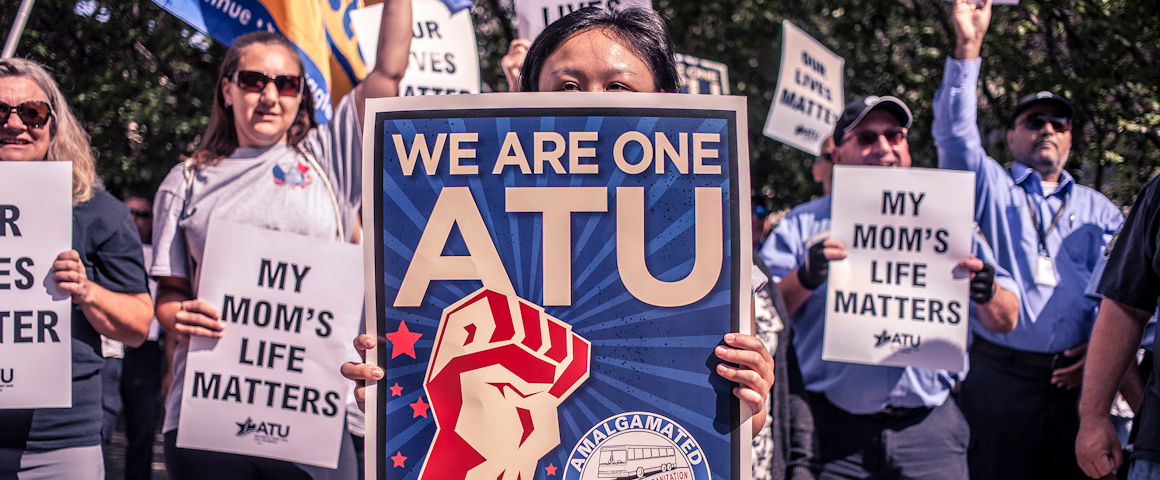Stronger province-wide fightback needed to resist cuts, privatization
Robert Crooks
On March 3 Manitoba Premier Brian Pallister released his ministerial mandate letters, which pledge to reduce “dependency on government” by cutting services, increasing privatization and intensifying the Progressive Conservative government’s attack on poor, working and colonized peoples.
Employment
One of the most concerning elements of Pallister’s mandate letters is his plan to overhaul the Employment Income Assistance (EIA) program. Pallister has tasked Minister of Families Heather Stefanson with reducing the number of people receiving EIA benefits. To achieve this goal, Pallister suggests an “employment-first” strategy that will pave the way to “meaningful employment” by placing people on a path towards “discipline” and “responsibility.” But what Pallister refuses to admit is that people who are dependent on EIA don’t lack responsibility and discipline; they lack access to employment options that pay a living wage.
Pallister pledges to create 40,000 new jobs. But if history is any indicator, these jobs will be low-paying, part-time jobs that offer no replacement to the dental, vision and prescription drug coverage that one receives on EIA. Bucking the cross-country trend, Manitoba saw negligible job growth in 2019, with part-time work increasing at the expense of full-time employment. Pallister eliminated 2000 jobs in the public sector since coming to power in 2016, and last year saw the highest number of people leaving the province since the 1990s. The cost of living in Manitoba continues to skyrocket and wages have not kept pace. Currently, the minimum wage in Manitoba is $11.65 an hour – at 40 hours per week, a worker making minimum wage takes home just over $1500 a month. With the average rent of a one-bedroom apartment in Winnipeg going for $1170 a month, this is well below a living wage.
Housing
Not one unit of public housing has been built under Pallister’s leadership, and what remains is falling into disrepair. Pallister’s solution to the housing crisis is to “empower non-profit organizations” and “foster a more entrepreneurial housing sector.” In other words, Pallister plans to transfer responsibility for housing the province’s most vulnerable people from the public to the private sector. This will jeopardize many people’s guarantee of shelter, by further subjecting their right to housing to the chaos of the free market.
In spring 2018, the government sold a 376-unit public housing high-rise in downtown Winnipeg to a private developer. Later that year, the PCs agreed to contribute over $11 million in tax rebates to True North Square, a luxury-condo building developed by the owners of the Winnipeg Jets. This elimination of affordable housing in Winnipeg’s downtown is coupled with Pallister’s plan to follow through on recommendations made in the Manitoba Police Commission’s Downtown Safety Strategy. This hastily researched document is a collaboration between both levels of government and corporate “stake-holders” and, by recommending more police and surveillance downtown, is designed to drive out the poor and intensify the province’s ongoing history of colonial violence.
Alcohol and Waste Management
The government is also looking to increase the involvement in the private sector in several other areas.
Pallister has suggested a P3 (private-public-partnership) to pay for the upgrades to Winnipeg’s North End Water Pollution Control Centre. In other Canadian cities where similar partnerships have taken place, the regulatory oversight that accompanies private sector investment has resulted in severe health and safety issues.
On the heels of a media-driven frenzy about thefts in liquor stores – which has so far led to the normalization of increased security measures, including racist carding practices and police being stationed at publicly-owned (MLCC) stores – Pallister has suggested that the province will expand the privatization of liquor sales. While market competition is said to improve services and lower prices, in practice the opposite is the case. According to a Canadian Centre for Policy Alternatives study conducted directly after the privatization of liquor sales in Alberta, “evidence showed prices had already risen, selection was down, liquor store break-ins and sales to minors were up, and government revenues were significantly lower than under the earlier public arrangement.” The privatization of Manitoba’s liquor stores will also lead to the loss of many unionized jobs.
Education
Later this month, the government will reveal the recommendations of a commission that was formed to assess Manitoba’s education system. The nine-person commission was headed by consultant Avis Glaze who recommended in 2017 that Nova Scotia abolish elected school officials. This commission’s membership has been criticized for not representing the populations of Manitoba’s K-12 students. Some fear the commission’s report will recommend reducing the number of school divisions in the province as well as the number of elected school officials. This would greatly hinder the democratic role that communities play in children’s education.
Pallister’s mandate letter to the Minister of Education, Kelvin Goertzen, also included the task of “[e]nhancing online learning options,” a move that may lead to online education becoming more common place at the expense of in-class learning.
Conclusion – stronger province-wide fightback
Pallister’s neoliberal agenda is not grounded in any evidence-based approach to governance but is rather an ideological position that reveals how disconnected he is from reality. This past week, NDP Opposition Leader Wab Kinew urged Pallister to implement a program that would supply breakfast for K-12 students in Manitoba. Pallister rejected the proposal, stating that it is not the government’s place to support parents who “aren’t fulfilling their responsibilities.” The paternalistic language used by Pallister is insulting and intentionally ignores the historical and economic conditions that shape the lives of people living in Manitoba.
While groups such as Budget for All have done an impressive job organizing people from all walks of life around the City of Winnipeg’s budget proposals, more is needed to push back against neoliberal policy at the provincial level. Strengthening the fightback means countering political narratives that blame the people for their poverty, by clearly identifying the strategies that the ruling class uses to disguise their antisocial pursuit of profit.




